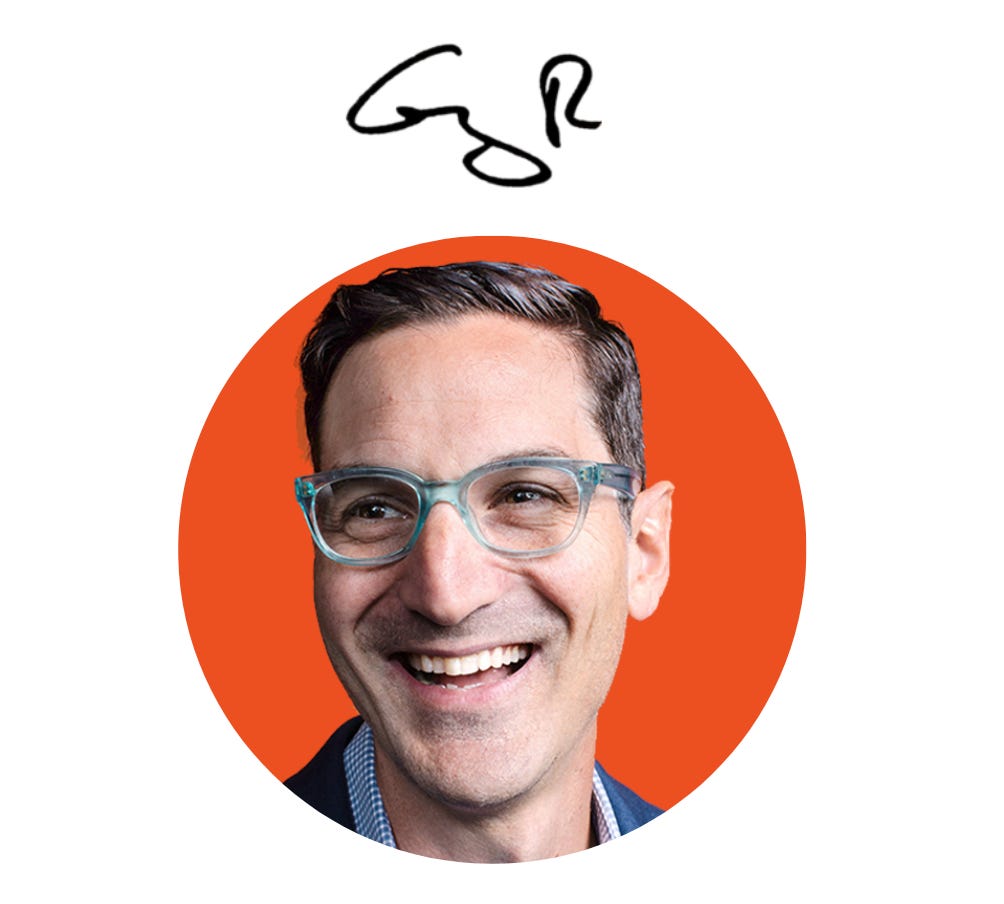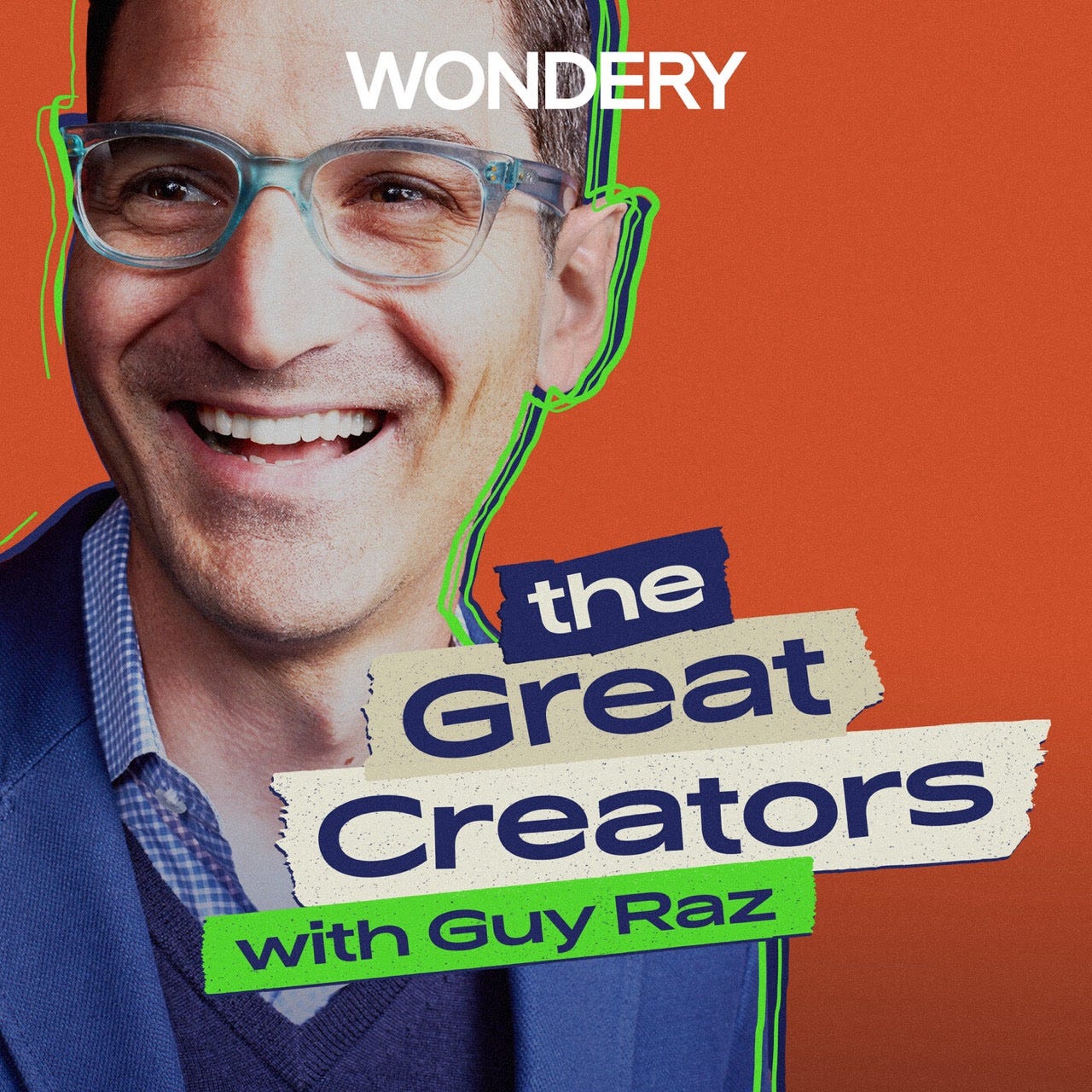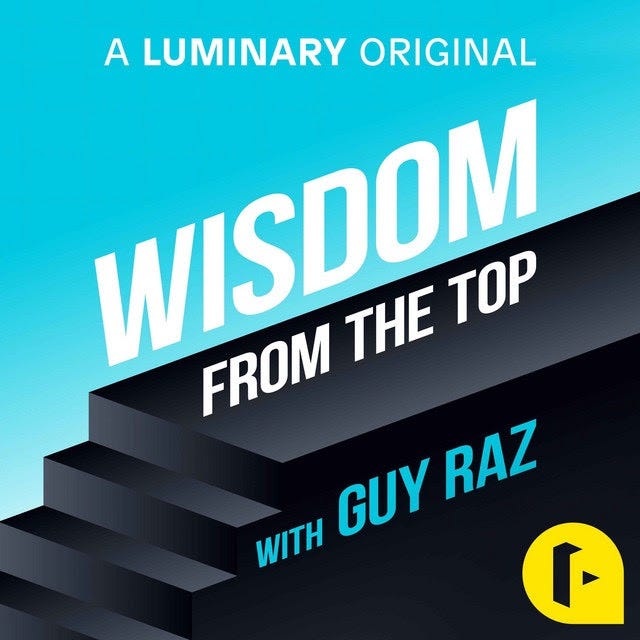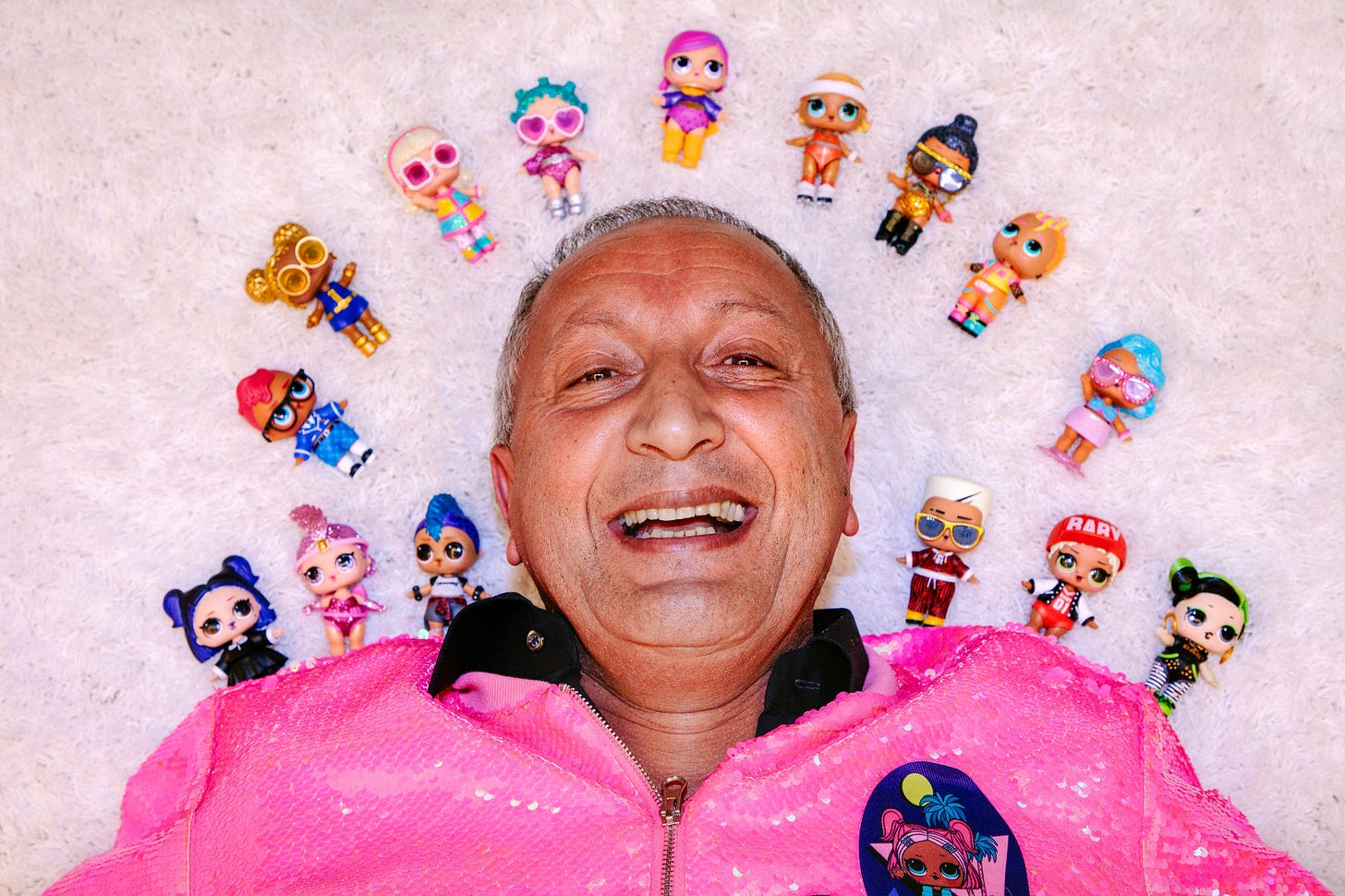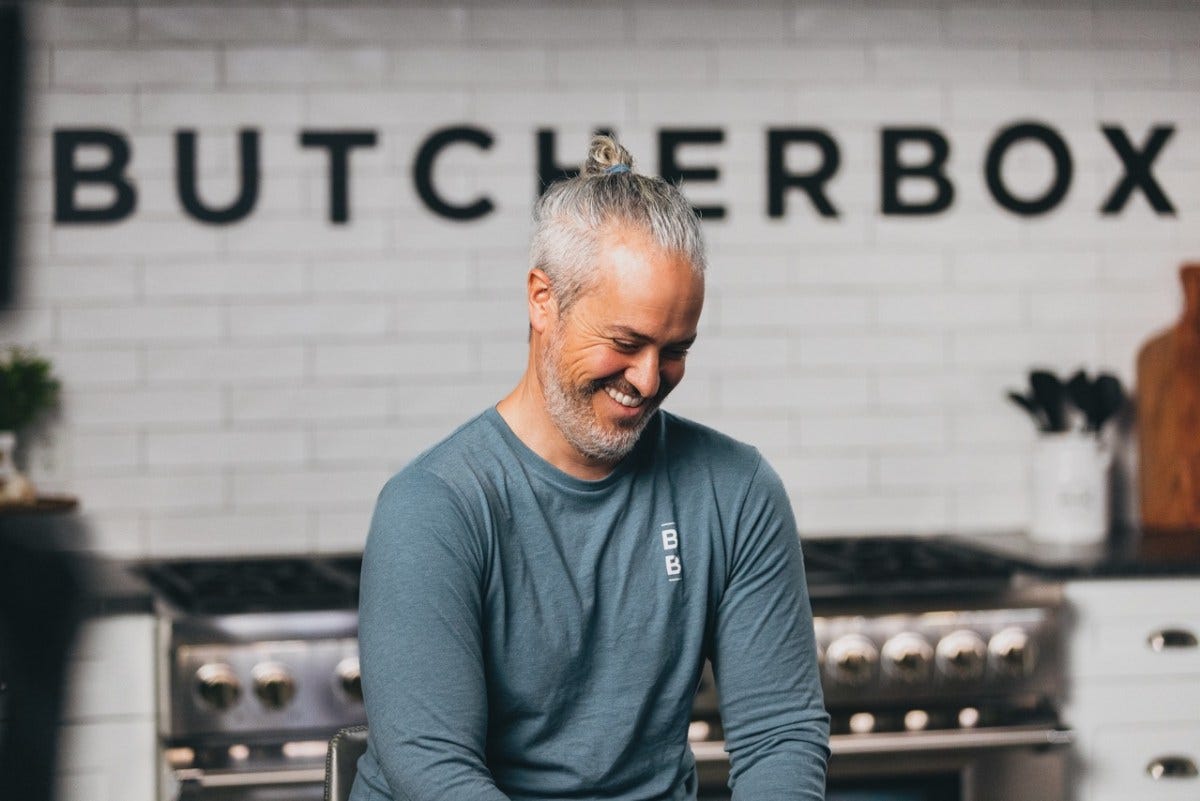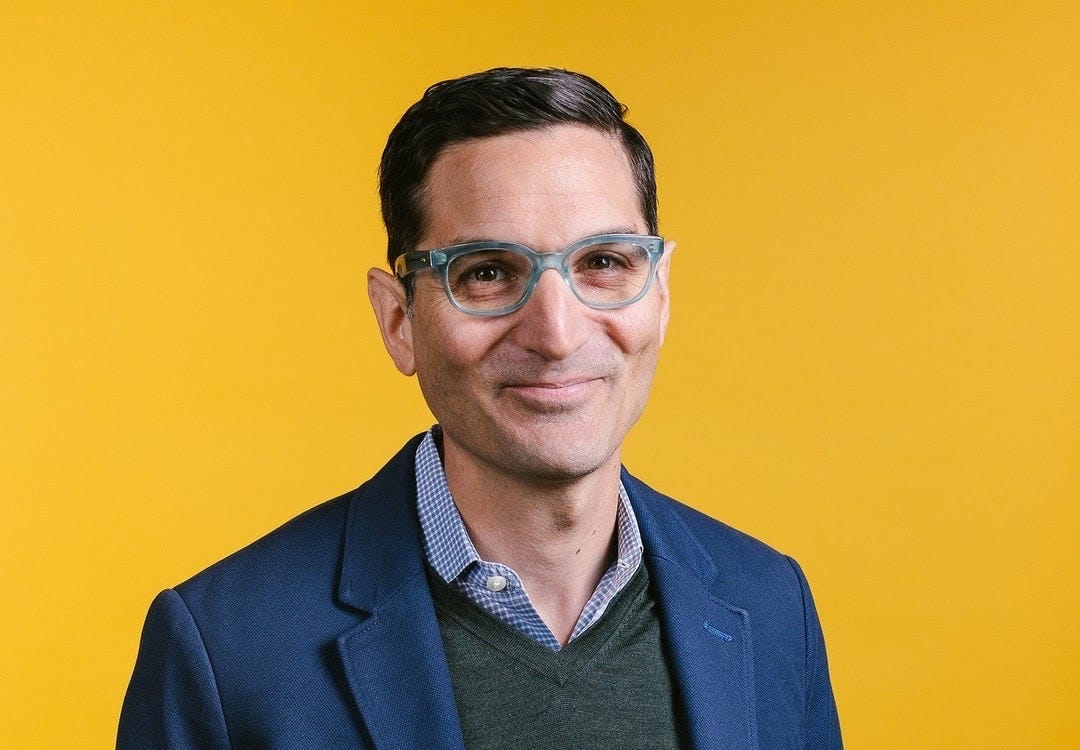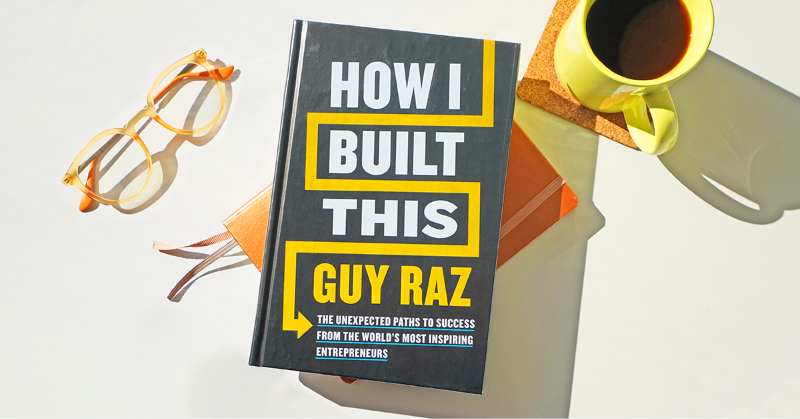One of the most powerful reminders in this week’s HIBT episode from Mike Rypka or Torchy’s Tacos is that it’s never too late to change your story.
Today, Torchy’s brings in over $300 million in annual revenue. It’s a beloved brand with a cult following, dozens of locations, and a bold personality.
But rewind a few decades… and Mike’s life looked very different.
As a young man, he struggled with drug and alcohol addiction. He dropped out of school. He wasn’t sure what he was doing and he had no clear path forward.
By most conventional standards, Mike wasn’t “on track” to build a business…let alone hold down a regular life and job.
And yet… he did.
It started with one step: getting clean.
Then another: enrolling in culinary school.
Then another: working long hours as a chef.
Eventually, he took a leap and opened a food truck. He didn’t have a five-year plan. He didn’t have startup capital. But what he did have was a commitment to keep moving forward, no matter how small the steps.
Here are 10 key lessons from my conversation with Mike that every builder—of businesses, careers, or second chances—should know:
1. Redemption starts with a decision
Mike didn’t magically recover. He hit bottom and decided he didn’t want to be a screw-up anymore. Change came when he chose to show up, take responsibility, and do the hard work.
2. No job is beneath you
Before Torchy’s, Mike washed dishes, chopped fruit, and got screamed at in fine-dining kitchens. Every job taught him something—about food, leadership, logistics, or himself.
3. Find mentors, even in chaos
A country club chef gave him his first break. At 22, Mike was running a 4,000-person food court at the World Bank. Every step up came from learning under someone who saw potential—even when others didn’t.
4. Earn respect by outworking everyone
Early in his career, Mike was sabotaged by his own kitchen staff. So he started showing up earlier, staying later, and prepping their stations for them. Over time, his actions built trust.
5. Constraints breed creativity
With no investors, no savings, and no industry buzz around food trucks in 2006, Mike maxed out his credit cards and borrowed against his house. The taco truck wasn’t Plan A—it was the only path he could afford.
6. Obsess over the food, not the hype
Torchy’s didn’t start with slick branding or a PR firm. It started with a Vespa, bags of chips and salsa, and Mike personally handing out menus at local businesses. The food did the rest.
7. Build a brand with soul
Mike didn’t name it “Mike’s Tacos” for a reason. Torchy’s was designed to be bigger than him—with a cheeky baby devil as the mascot and a rebellious, “damn good” food-first identity.
8. Culture is built every day
Mike’s mantra: If it’s not damn good, don’t serve it. He trained new hires himself, ran tasting classes, and taught his team to reject mediocrity—even if it meant pulling a popular item when tomatoes weren’t ripe.
9. The line between failure and success is razor thin
At multiple points, Mike couldn’t make payroll, almost lost his house, and was days away from closing. A pumpkin patch gamble, a lucky news segment, and a few key catering gigs kept things alive.
10. Rebel with a cause
Mike’s rebellious streak nearly destroyed him as a teenager—but it became his superpower as a founder. He refused to play by the traditional rules of restaurants—and that’s what made Torchy’s stand out.
You’ll love this one! Have a great weekend!
On the Podcasts This Week!
How Mike Rypka Changed His Life and Built a $300M Brand
Before he built one of America’s hottest taco chains, Mike Rypka was spiraling fast.
Addicted before he was old enough to drive. Nearly killed in a drug deal gone wrong. A truly troubled teenager.
But after getting clean, Mike found refuge in the kitchen. There the structure, heat, and hustle gave him something to hold onto. And eventually, something to build.
In 2006, with no investors and a beat-up food trailer, Mike parked himself on an Austin street corner and started selling bold, messy tacos under a fiery red devil logo (or what I confused as a plunger!)
He maxed out credit cards. Delivered chips on a Vespa. Took wild bets (like $15K worth of pumpkins). And slowly, something clicked.
What started as one trailer became a chain of 130+ stores and $300 million in annual sales.
But behind the business is something even more powerful: a story of redemption, relentless grit, and a promise to never serve anything that’s not damn good.
HIBT Advice Line: Think Bigger
This week on the Advice Line, I’m joined by Isaac Larian, founder of MGA Entertainment – the company behind Bratz and LOL Surprise dolls. Isaac built a global toy empire from scratch, and today, he’s sharing hard-earned lessons with our callers.
First up, Megan: How do I grow visibility without paying for expensive PR?
Megan runs T is for Tot, a subscription box for hands-on learning kits. It’s growing fast, but marketing has hit a wall. We suggest two bold moves: raise your prices to elevate perception and stop marketing to moms. Capture the magic and speak to the people who want to give it.
Next, Libie: Should I raise capital or keep scaling slowly?
Libie founded Fulton, a DTC brand selling sustainable cork insoles. Sales are strong, but she’s weighing the next move. Isaac cautioned against raising money just to raise it. Focus on authentic testimonials, sharpen your pitch, and keep the bar high for anyone who wants a stake in your business.
Finally, Robin: What’s one bold move I should consider?
Robin launched Town Hall Outdoor Co., a kids-only outdoor apparel brand. Isaac’s advice was immediate: rethink the name. Build a brand that people instantly understand.
Isaac leaves us with this: Your ability to solve problems is the real superpower. Forget titles, ignore trends, and read every contract twice!
If you would like to be featured on an upcoming episode, call and leave a 1-minute message at 1-800-433-1298 or send a voice memo to hibt@id.wondery.com
Anna Kendrick on the Many Sides of Creativity
Anna Kendrick has spent most of her entire life acting.
From first performances at her community theater at the age of six, all the way to Broadway, and to starring inPitch Perfect – she’s done it all.
Anna absolutely loves the craft of acting and storytelling.
And in this episode, she shares what she learned from George Clooney, the lifelong bonds formed with castmates in Pitch Perfect, and what helped her take the leap from acting to directing.
Anna’s story is one of evolution and fearlessness – tackling challenging roles, confronting personal experiences, and exploring her many sides of creativity.
Watch it on YouTube:
How Charles Pan-Fried Chicken Grew with Heart
Charles Gabriel started with a folding table, a pan, and a recipe passed down from his mother.
Today, Charles Pan-Fried Chicken is a Harlem institution – thanks not only to its legendary flavor, but to a partnership rooted in purpose.
When Chef Quie Slobert joined forces with Charles during the pandemic, it wasn’t just about scaling a business. It was about preserving a legacy and expanding it the right way.
Together, they’ve turned a beloved local spot into a rising restaurant group with national recognition. And along the way, they proved that heart and hustle can go hand in hand.
Can You Outsmart a Super Smart AI?
Mindy’s on a mission to write the world’s trickiest trivia question. But things get weird when she ends up at on Creepy Blvd and meets… The Examinator!
In this week’s Wow in the World, me and Mindy team up with a villain whose evil plan is to stump the smartest brains on the planet… including AI!
But there’s a problem: artificial intelligence keeps acing every test he throws at it. So now, The Examinator wants help crafting the ultimate challenge – one that even a robot can’t solve.
From joke questions about yams and hams to a cowboy hat with built-in AI (hi, Hat-GPT!), this episode explores how scientists test AI, how it’s getting smarter, and why even villains sometimes need a career change.
What are jellyfish really made of?
Jellyfish are some of the most incredible ancient creatures still alive today.
But, did you know that jellyfish are made of 95% water? of course! Or that they might have than one heart?
Learn all this and more on the latest episode of Two What’s and a Wow!
From the Archives!
MGA Entertainment: Isaac Larian
When Isaac Larian moved from Iran to Los Angeles at 17, he had just a few hundred dollars and zero connections in the toy business. But he brought with him something even more valuable: a relentless drive to succeed.
After years of hustling, Isaac struck gold with Bratz: a line of edgy, fashion-forward dolls that became a massive hit and a direct challenge to Barbie. That success kicked off a years-long legal battle with Mattel, but it also cemented MGA Entertainment as a major player in the industry.
Today, Isaac is still at the helm of MGA, overseeing brands like L.O.L. Surprise! and Rainbow High.
At 70, he says he still has the same scrappy energy he had growing up in the slums of Tehran…and no plans to slow down.
ButcherBox: Mike Salguero
In 2015, Mike Salguero just wanted to buy some grass-fed beef. He ended up picking it up from a farmer in a parking lot… in a trash bag.
That awkward handoff sparked an idea: what if there were an easier, more reliable way to get high-quality meat delivered to your door?
At the time, Mike’s previous company was on shaky ground and he had zero experience in food or logistics. But he believed in the vision. And so he started building ButcherBox from scratch.
He launched with a Kickstarter campaign, partnered with farmers and packers, and leaned on influencers to spread the word.
Without raising a single dollar from venture capital or even taking out a loan, ButcherBox grew into a thriving subscription business that now brings in over $500M in revenue per year.
See you next time!
What do you want more or less of?
Just send a tweet to @guyraz or a message on IG to @guy.raz or LinkedIn and put #GuyRazNewsletter at the end so I can find it.


